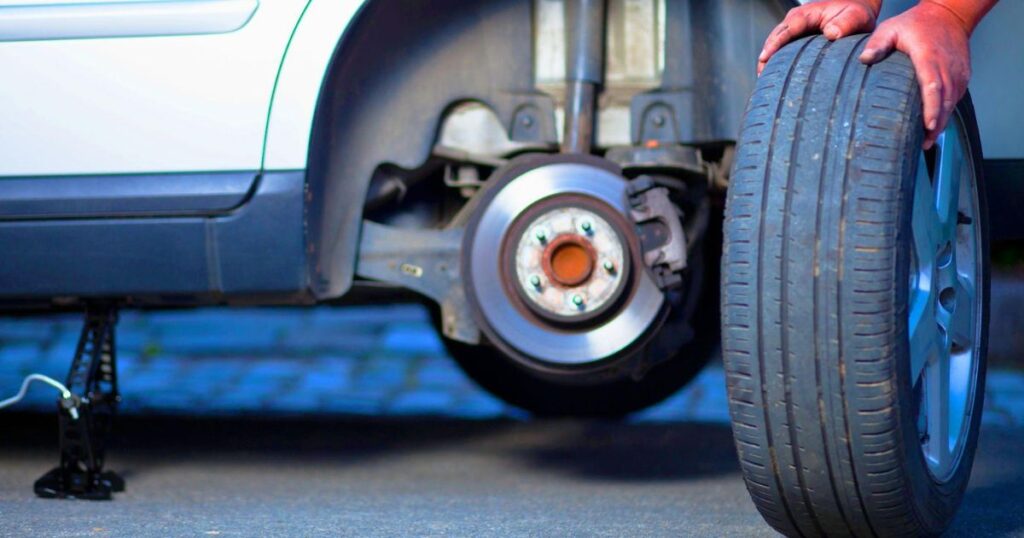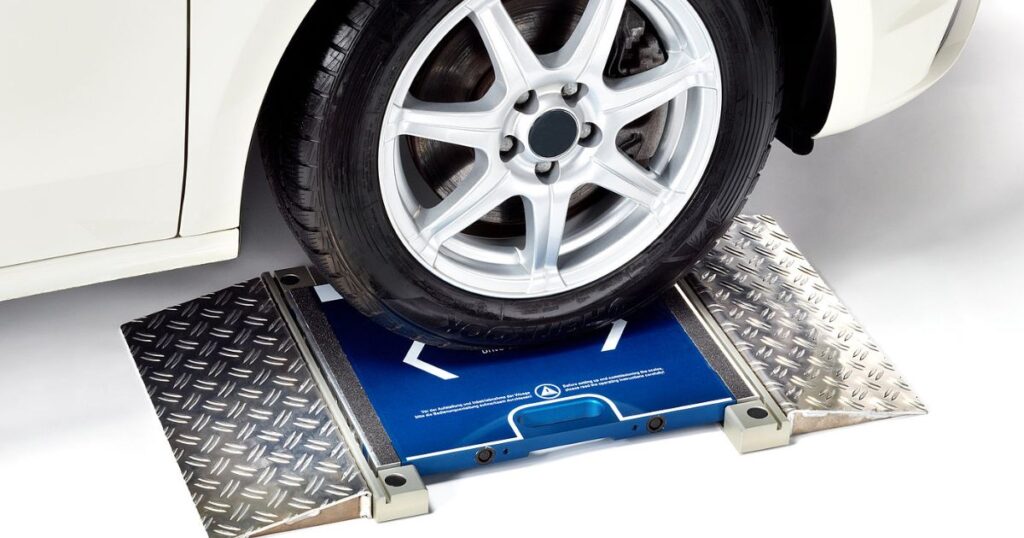Regarding cars, their weight is a crucial factor affecting their performance, safety, and functionality. This comprehensive guide delves deep into car weights, exploring everything from general statistics to the impacts on fuel economy, safety, and insurance premiums. So, buckle up as we embark on a journey to uncover the mysteries of how much does a car weighs and why it matters.
General Car Weight Statistics
Let’s start with some general statistics regarding car weights over the years. From 2005 to 2022, the average vehicle weight has fluctuated, reflecting changes in manufacturing trends, consumer preferences, and regulatory standards, according to data from the U.S.
Environmental Protection Agency, the average vehicle weight in 2022 was 4,094 pounds, a slight decrease from the previous year’s record of 4,289 pounds. This downward trend could be attributed to various factors, including advancements in lightweight materials and a shift towards more fuel-efficient designs.
Types of Vehicle Weight Measurements

Before diving deeper into car weights, it’s essential to understand the different types of weight measurements used in the automotive industry. These measurements are crucial in determining a vehicle’s overall weight and implications. Here are some common types of vehicle weight measurements:
- Curb weight: The weight of an unloaded vehicle with no occupants, equipment, or cargo.
- Gross Vehicle Weight (GVW): Includes all occupants, cargo, and equipment when measuring the weight of a vehicle.
- Gross Vehicle Weight Rating (GVWR): The maximum weight a vehicle can carry, as defined by regulatory standards.
- Payload: GVW plus the weight of any attached trailer or towed vehicle.
Understanding these weight measurements is essential for consumers and industry professionals, as they provide valuable insights into a vehicle’s capabilities and limitations.
What Are the Weights of Cars Based on the Body Style?
Now, let’s take a closer look at how the weight of a car can vary based on its body style. Different body styles, such as sedans, SUVs, trucks, and vans, have distinct characteristics influencing their overall weight. Here’s a breakdown of the average weights for various body styles:
- Small Sedan: Average weight around 2,600 pounds
- Mid-size Sedan: Average weight of approximately 3,500 pounds
- Large Sedan: Average weight ranging from 4,000 to 4,400 pounds
- Small Truck/SUV: Average weight approximately 3,300 pounds
- Mid-size Truck/SUV: Average weight around 5,300 pounds
- Large Truck/SUV: Average weight ranging from 6,000 to 6,600 pounds
These average weights provide a glimpse into the diverse range of vehicles available on the market and highlight the variations in weight based on body style.
What Are the Weights of Cars Based on the Car Models?
Moving on, let’s explore how the weight of a car can vary based on specific models and manufacturers. Car models come in various shapes and sizes, each designed with unique features and specifications. Here’s a closer look at the weights of some popular car models:
- Toyota Corolla: Average weight around 2,600 pounds
- Nissan Altima: Average weight of approximately 3,500 pounds
- Chrysler 300: Average weight ranging from 4,000 to 4,400 pounds
- Nissan Rogue: Average weight of roughly 3,300 pounds
- Nissan Navara: Average weight around 5,300 pounds
- Ford F-250: Average weight ranging from 6,000 to 6,600 pounds
These examples showcase the diversity in car weights across different models and highlight the importance of considering weight when choosing a vehicle.
What Are the Different Ways to Find the Vehicle’s Weight?
Now that we’ve explored the average weight of cars based on body style and model let’s discuss how consumers can determine the weight of a specific vehicle. There are several methods to determine a vehicle’s weight, each with advantages and limitations. Here are some common ways to find a vehicle’s weight:
- Manufacturer Specifications: Most vehicle manufacturers provide detailed model specifications, including curb weight and GVWR.
- Weighing Stations: Some jurisdictions have weighing stations where vehicles can be weighed for regulatory compliance or personal records.
- Online Resources: Various online databases and resources provide weight information for different vehicle models.
- Owner’s Manual: The owner’s manual of a vehicle often contains information about its weight and payload capacity.
By utilizing these methods, consumers can obtain accurate information about the weight of a specific vehicle, helping them make informed decisions.
Average Weight by Vehicle Type
Now, let’s delve into the average weights of vehicles categorized by type. The Federal Highway Administration defines weight classes for cars based on regulatory standards. Here’s a breakdown of average weights by vehicle type:
| Vehicle Type | Average Weight (in pounds) |
| Small Car | 2,600 |
| Mid-size Car | 3,500 |
| Large Car | 4,000 to 4,400 |
| Small SUV/Truck | 3,300 |
| Mid-size SUV/Truck | 5,300 |
| Large SUV/Truck | 6,000 to 6,600 |
These weight classes provide a framework for understanding the average weights of vehicles and their respective categories.
Average Weight of Commercial Vehicles by Type
In addition to passenger vehicles, commercial vehicles also play a significant role in transportation. Commercial vehicles come in various forms, each designed for specific purposes and industries. Here’s a glimpse into the average weights of standard commercial vehicles:
- Pickup Truck: Average weight around 6,000 pounds
- Ambulance: Average weight approximately 10,000 pounds
- Delivery Van: Average weight around 12,000 pounds
- School Bus: Average weight approximately 34,000 pounds
- Charter Bus: Average weight around 40,000 pounds
- Fire Truck: Average weight approximately 49,000 pounds
- Garbage Truck: Average weight around 50,000 pounds
- Semi-truck/Tractor-trailer: Average weight ranging from 80,000 pounds
These average weights highlight the significant variations in size and weight among different types of commercial vehicles, reflecting their diverse applications and industries.
Weights of Popular Vehicle Makes and Models
Moving on, let’s explore the weights of some popular vehicle makes and models. Certain brands and models are known for their distinct characteristics, including weight. Here’s a closer look at the weights of some popular vehicle makes and models:
- Ford F-Series: Curb weight around 4,705 pounds
- Chevrolet Silverado: Curb weight approximately 5,000 pounds
- Ram Pickup: Curb weight around 5,082 pounds
- Toyota RAV4: Curb weight of roughly 3,450 pounds
- Honda CR-V: Curb weight around 3,926 pounds
- Toyota Camry: Curb weight of approximately 3,340 pounds
- Nissan Rogue: Curb weight around 3,616 pounds
- Jeep Grand Cherokee: Curb weight of roughly 4,413 pounds
- Toyota Tacoma: Curb weight around 4,445 pounds
- Toyota Corolla: Curb weight approximately 2,955 pounds
These examples highlight the diverse range of vehicle makes and models available on the market and illustrate how their weights vary based on design and specifications.
Vehicle Weight and Fuel Economy
Next, let’s explore the relationship between vehicle weight and fuel economy. A vehicle’s weight significantly impacts fuel efficiency, with heavier vehicles generally requiring more fuel. Here are some key points to consider:
- Fuel Efficiency: Each 100 pounds lost in vehicle weight can lead to a fuel economy increase of 1% to 2%.
- Consumer Preferences: Many consumers gravitate towards larger vehicles, such as pickups and SUVs, which typically have lower fuel economy compared to smaller cars.
- Electric Vehicles: Electric vehicles offer an alternative to traditional gasoline-powered cars, with zero tailpipe emissions regardless of weight.
By understanding the relationship between vehicle weight and fuel economy, consumers can make more informed decisions when choosing a vehicle that aligns with their priorities and preferences.
Vehicle Weight and Safety
Safety is paramount when it comes to vehicles, and the weight of a car plays a crucial role in its crashworthiness and occupant protection. Let’s explore how vehicle weight influences safety:
- Crash Protection: Heavier vehicles offer better crash protection due to their larger size and mass, providing more substantial crumple zones and structural integrity.
- Fatality Rates: The likelihood of a smaller vehicle’s occupants dying in a crash generally increases as the vehicle’s weight decreases. However, advancements in safety technology have contributed to overall improvements in crash fatality rates across different vehicle types.
- Consumer Perception: Consumers commonly perceive that larger, heavier vehicles are safer, leading to preferences for SUVs and trucks.
Despite the safety advantages of heavier vehicles, it’s essential to consider other factors, such as driver behavior, road conditions, and vehicle design, when assessing overall safety.
Impact on Car Insurance
The weight of a vehicle can also impact car insurance premiums, as insurers consider various factors when determining coverage costs. Let’s explore how vehicle weight influences car insurance:
- Replacement Costs: Larger vehicles tend to be more expensive to replace in the event of an accident, leading to higher insurance premiums.
- Total Loss Probability: Despite higher replacement costs, SUVs and trucks are less likely to be totaled in an accident than sedans, influencing insurance rates.
- Theft Risk: Certain smaller cars, particularly luxury vehicles, may be more prone to theft, affecting insurance premiums.
By understanding how vehicle weight influences car insurance premiums, consumers can make more informed decisions when selecting coverage options.
Why Is It Important to Know a Car’s Weight?

Now, why is it essential to know a car’s weight? Understanding a vehicle’s weight has several practical implications for consumers, including:
- Safety: Knowing the weight of a car can help consumers assess its crashworthiness and occupant protection.
- Fuel Efficiency: Vehicle weight directly impacts fuel economy, so knowing a car’s weight can help consumers make more fuel-efficient choices.
- Insurance Costs: Vehicle weight can influence insurance premiums, so knowing the weight of a car can help consumers estimate insurance costs accurately.
- Regulatory Compliance: Some jurisdictions have weight restrictions for vehicles, so knowing a car’s weight can help ensure compliance with local regulations.
By being aware of a car’s weight, consumers can make more informed decisions throughout the vehicle ownership journey, from purchasing and insuring to driving and maintaining.
Read More Posts
What Car Is Lightning McQueen? Ultimate Guides – 2024
What Is The Most Expensive Car In The World?
FAQs
How much does an average car weigh?
On average, a car weighs approximately 4,000 pounds, but this can vary depending on the make and model.
How much does one car weigh in tons?
One car typically weighs between 1.5 to 2.5 tons, equivalent to 3,000 to 5,000 pounds.
Is 3500 pounds heavy for a car?
Yes, 3500 pounds is considered relatively heavy for a car, falling within the standard weight range.
What is the general weight of a car?
The general weight of a car usually ranges from 2,500 to 4,000 pounds, though this can vary based on factors like size and design.
Conclusion
In conclusion, the weight of a car is a critical factor that affects various aspects of its performance, safety, and functionality. From fuel economy and insurance premiums to crashworthiness and regulatory compliance, understanding a vehicle’s weight is essential for consumers.
By exploring the average weights of cars based on body style and model and their impacts on fuel economy, safety, and insurance, consumers can make more informed decisions when selecting and operating a vehicle. So, the next time you find yourself pondering how much does a car weigh, remember that it’s not just a number—it’s a critical piece of information that can shape your automotive journey. Safe travels!







